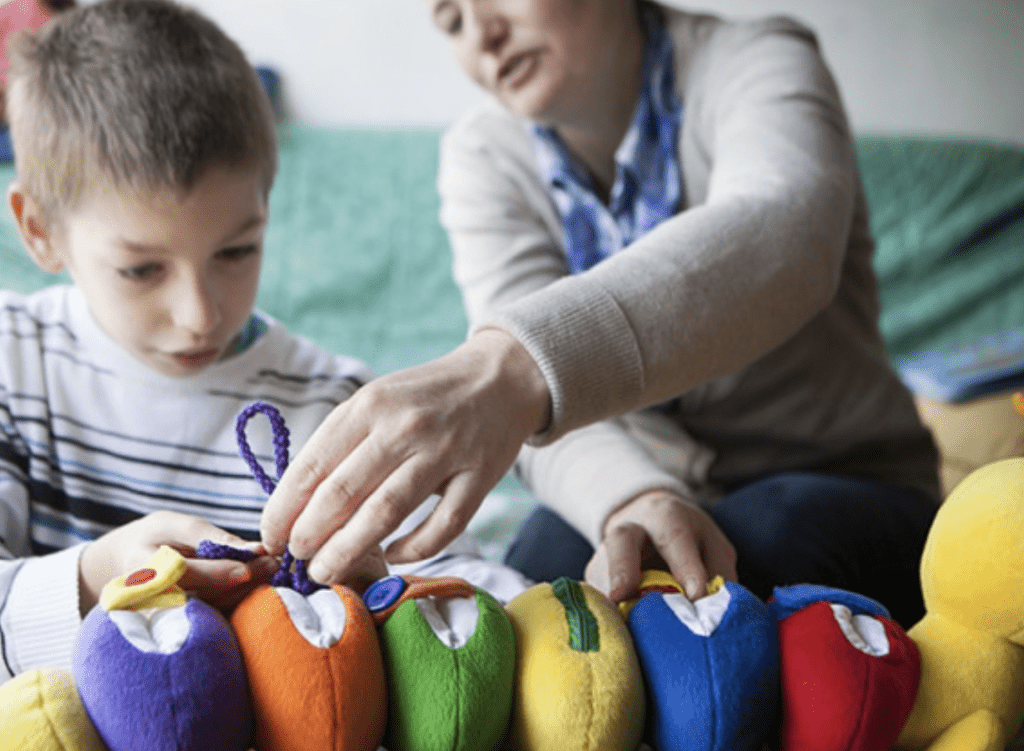Autism spectrum disorder in children is a neurodevelopmental disorder that affects each child differently. Early childhood is when it manifests, affecting communication, social interactions, and behavior. In recent years, research has shed more light on autism and its various aspects, which have helped to better understand the condition and provide support for children affected. This blog will examine the main features of autism, the challenges that children face, available intervention, and ways society can create a more inclusive environment.
Have Any Questions? Then Contact Us Now!
Or Call Us At 727-258-7659
Autism Spectrum Disorder In Children – Identifying ASD
Autism is difficult to diagnose, especially when it affects young children. Early signs of autism include repetitive behaviors, limited eye contact and delayed speech and language. Autism is a spectrum condition, which means that each child will experience it differently. Some people may excel in certain areas such as music or mathematics, while others might struggle with sensory issues.
Causes And Risk Factors
Research suggests that while the cause of autism is unknown, genetic and environmental factors are likely to be involved. Researchers have identified a number of risk factors including the advanced age of parents, genetic mutations and prenatal exposure to certain chemicals or medications. It’s important to keep in mind that not all children who have these risk factors develop autism and vice versa.
Autism And The Challenges Children Face
Autism presents unique challenges to children. Communication and social interaction difficulties can lead to feelings or isolation. It may be difficult for them to interpret and understand non-verbal signals, which makes it more difficult to form relationships. Sensory sensitivities may also cause discomfort in environments that have loud noises, bright lighting, or strong odors. These challenges can affect their quality of life and educational experience.
Early Intervention And Treatments
Early intervention is critical in helping children with autism. There are many therapies and interventions available to meet specific needs and encourage development. Applied Behavior Analysis is a therapy widely used that focuses on changing behaviors, improving communication, and reducing problematic behaviors. Speech and language therapies help improve communication while occupational therapy aids in sensory integration and motor skill improvement. Social skills training can also help children with autism better navigate social situations.

Create An Inclusive Environment
Inclusionary environments are vital to supporting children with Autism. Teachers, caregivers and the society at large can all contribute to creating inclusive environments. Inclusionary teaching methods can be adopted by education systems, including sensory accommodations and individualized learning plans. Encourage peer interaction and promote understanding between classmates to foster acceptance and compassion. Businesses and community organizations can also implement autism-friendly practices such as sensory friendly events and accessible facilities.
Empowering Parents And Caregivers:
Parents and caregivers are crucial in the lives of autistic children. It’s important to give them emotional support, information, and resources. Parent training programs provide parents with the tools to help them manage difficult behaviors, improve communication, and develop strong relationships with children. Online communities and support groups are also valuable for exchanging experiences and learning from others who face similar challenges.
Embracing Neurodiversity
It is important to accept and embrace individuals with autism. Autism is not something that can be cured. It’s a way of seeing and experiencing the world. We can create a society that is inclusive and values differences by embracing neurodiversity instead of trying to “normalize”.
Autism is a condition that affects children in a variety of ways. It requires support and understanding. Raising awareness of autism and its challenges and implementing early intervention are all ways to help.
We can help children with autism thrive in inclusive environments and achieve their full potential. It is vital that society embraces neurodiversity, and celebrates the unique abilities and strengths of people with autism.
Contact LiFT Academy Now!
LiFT Academy, a developmental disabilities school, was founded on January 9, 2013. Its mission is to empower and inspire people with neurodiversity so that they can learn, thrive and achieve. We aim to create a level playing field for people with neurodiversity and learning differences. Our learners receive exceptional academics, career training and life skills. We also provide opportunities to build meaningful relationships and strengthen social skills. We are passionate about ensuring that every student learns to appreciate and celebrate their differences. It is equally important that each student respects the differences in others.
LiFT Academy is a culture that values teamwork, collaboration and dedication to improving the lives of others. We are motivated by the desire to serve students, families and community. LiFT aims to be thought-leaders in the field of neurodiversity and exceptional education. We are looking for individuals who share our values and mission, and believe in community and the power to improve the world.
Does your child identify with the following neurodiversity?
- Autism
- ASD – Autism Spectrum Disorders
- ADD
- ADHD
- Learning Differences
- Sensory Processing Disorders
- Auditory Processing Disorders
- Down Syndrome
- Intellectual Disabilities
- Developmental Delays
Then contact us today to learn more about the benefits of LiFT Academy and how LiFT helps with autism spectrum disorder in children or to get started on the enrollment process at our established neurodiverse school. You can reach us by phone, or Email.

